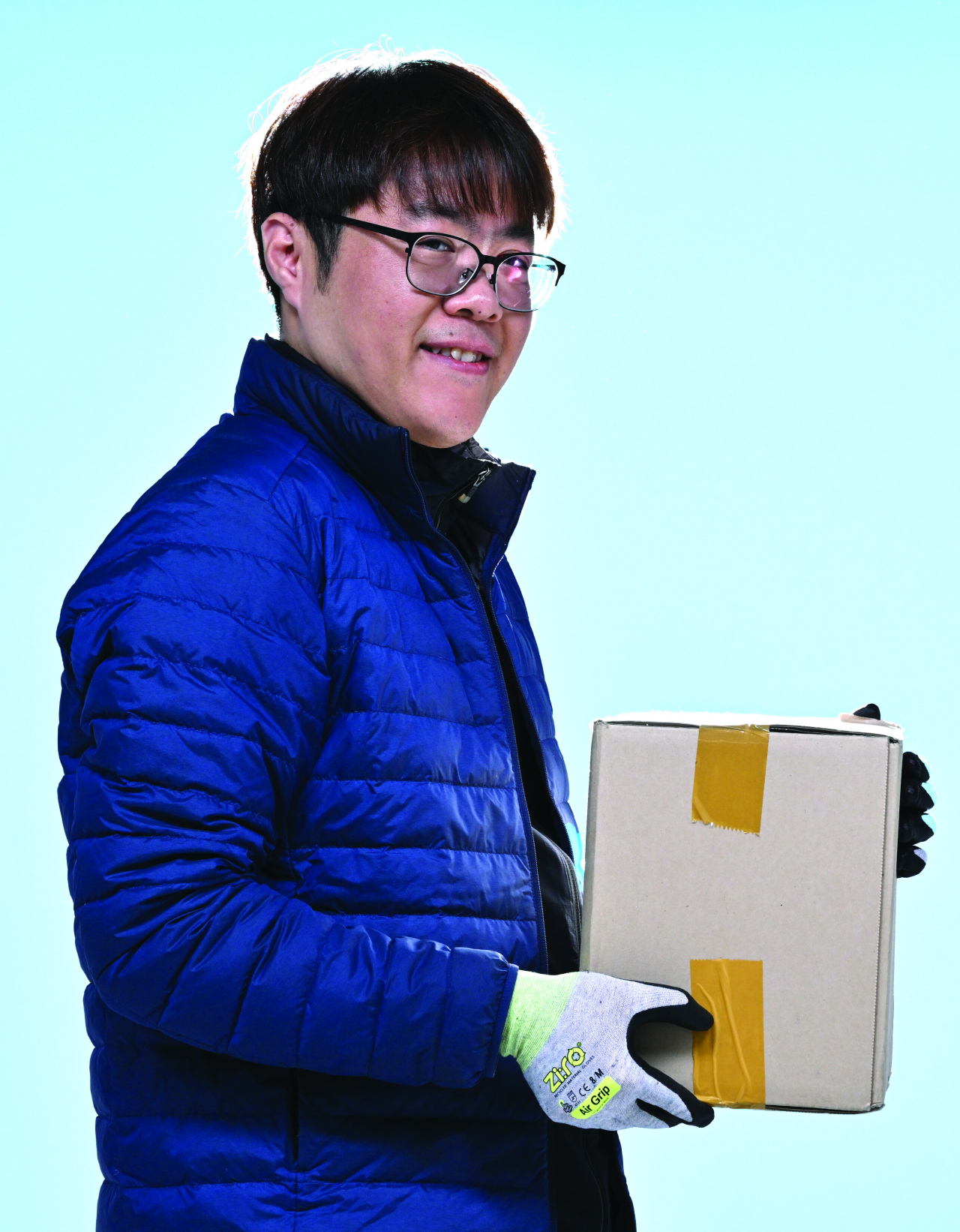
Kim Dae-gun’s day starts very early.
At the break of dawn, he collects the packages that need to be delivered that day. He sorts and loads them in his truck, arranging them in a way that matches his itinerary for the next several hours: items meant for the nearest locations in the front, with the farthest destinations in the back.
“Once I get to my delivery area, it is a race against time,” Kim said. He needs to move quickly, efficiently and without mistakes to deliver nearly 200 parcels before the evening rush hour begins.
He said he often skips lunch or grabs something simple from a convenience store to save time.
Kim, a delivery worker for a company that provides services to the National Postal Service servicing a neighborhood in Beongjeom, southwest of Seoul, used to have an office job until October last year.
The career change derived from his desire to escape the stress of office politics, networking and hierarchies, as well as the pressure to work late and attend after-work gatherings. He also believed that the change would bring him closer to his long-held dream of becoming a writer.
The first week as a delivery worker, however, was challenging.
Unfamiliar with the neighborhood he was covering and feeling the pressure to finish the day’s load, he made several delivery errors.
"I received a barrage of complaints from customers and calls from customer service," he said.
As his delivery mistakes caused delays throughout the entire delivery route, necessitating that he return to pick up items and deliver them to their correct locations, he finally got home at around midnight during that initial week.
Still, he felt relieved that he had managed to complete the day’s tasks, Kim said.
He now always makes sure to double-check the addresses on the packages and takes photographs of them after placing them on each doorstep. It takes time, but significantly reduces errors, he explained.

Life as a delivery person
The beauty -- or downside -- of a delivery job is that you work alone.
But this doesn't mean you're completely isolated, cut off from the human interactions that sprinkle little bits of joy throughout our days.
Like many delivery workers in Korea, Kim delivers parcels without any direct contact with the recipients. This means he leaves the items in front of the door or in designated places outside the door, without ringing the doorbell.
Sometimes though, he chooses to ring the bell.
When items are perishable foods that need to be stored in the refrigerator, or expensive electronics that risk being stolen, he knocks on the door or rings the bell, to alert those inside about the delivery.
He also does so when delivering to houses where older people live.
"One day, I delivered a parcel to an elderly woman who seems to live alone. We exchanged greetings and a few words, and I noticed how those few words of conversation brightened her up," he said. "Since then, whenever I go to her house, I deliver the package in person."
And to his surprise, even through brief exchanges, Kim found moments of gratitude, friendship and camaraderie with fellow delivery workers and residents in his service area.
He recalls a time when he was unable to drive up a path during heavy snow. His rear-wheel-drive truck struggled to make it up a slope. During his ordeal, he received a phone call from a senior colleague inquiring in a worried tone whether he was alright.
"He himself must have been struggling too, but he called because he was worried about me as the newbie. I thought he was a warmhearted person," he said.
On a different occasion, while Kim was going upstairs to deliver packages in a building without an elevator, he heard another delivery worker a floor above him. The worker, to his surprise, offered to take Kim’s packages and deliver them, so that he would not need to go up the stairs also.
“I declined because I had to take proof shots of the deliveries, but I was appreciative of his gesture of kindness,” he said.
Over time, he came to understand the source of their kindness. It was a sense of comradeship. Although they may not know each other personally, they understand how challenging each delivery worker's daily tasks are.
One day, Kim's colleague caught the flu, with a fever above 39 degrees Celsius. Kim thought his colleague should rest, but the absence of support for sick workers meant he had to handle the deliveries anyway.
“I wished I could help, but being a newbie, I could barely handle my own deliveries," he said. "The next day, his health improved. I found myself relieved that he didn’t collapse. I felt both bitter and sorry that he had to keep working under such conditions.”
But the switch over to the world of package deliveries was the right decision, he said, at least for now.
“This job has not only improved my physical health but has also given me more satisfaction than the eight years I spent in an office role,” he said. "There's no need to watch out for the boss's mood, and no need to attend company dinners unwillingly."
Life as an aspiring writer
When he is not out delivering packages, he focuses on writing.
Currently, he is sharing his life as a delivery worker on the online blog platform Brunch, under the title, “Delivery Diary.” So far, he’s written more than 260 entries.
He has also started serializing a mystery novel on the same platform, which features a protagonist who is a delivery worker.
Despite his satisfaction with the delivery job and his plan to continue in this role until he achieves commercial success as a writer, his family and acquaintances do not approve of his choice. They look at him with pity, he said.
Delivery workers are paid slightly more than the national average but face prejudice here as Koreans usually see office jobs as more prestigious compared to roles requiring physical labor.
"People often tell me to get a 'proper' job," he said. "But I see this as a ‘proper’ job, and I'm content with my work. I believe I play a small, but necessary, part in this society."





